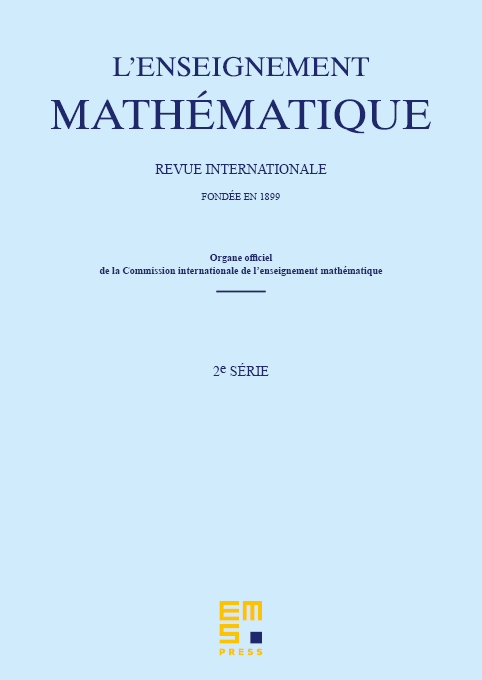Tschirnhaus transformations after Hilbert
Jesse Wolfson
University of California, Irvine, USA

Abstract
In this paper, we use enumerative geometry to simplify the formula for the roots of the general one-variable polynomial of degree , for all . More precisely, let denote the minimum for which there exists a formula for the roots of the general degree polynomial using only algebraic functions of or fewer variables. In 1927, Hilbert sketched how the 27 lines on a cubic surface could be used to construct a 4-variable formula for the general degree 9 polynomial (implying ). In this paper, we turn Hilbert's sketch into a general method. We show this method produces best-to-date upper bounds on for all , improving earlier results of Hamilton, Sylvester, Segre and Brauer.
Cite this article
Jesse Wolfson, Tschirnhaus transformations after Hilbert. Enseign. Math. 66 (2020), no. 3/4, pp. 489–540
DOI 10.4171/LEM/66-3/4-9